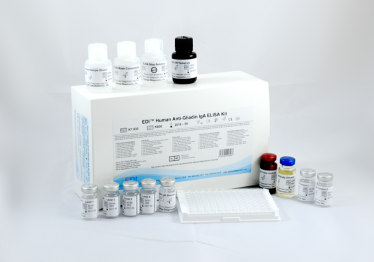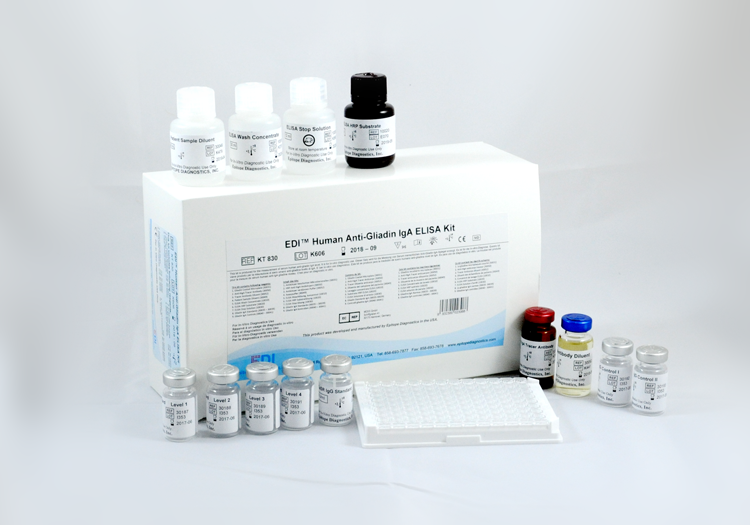Background
Celiac disease, or gluten-sensitive enteropathy, is characterized by atrophy of the small intestinal villi, leading to so-called 'flat mucosa' occurring in both adults and children. It is caused by a pathological intolerance to gliadin, resulting in inflammation and atrophy of the small intestine mucosa. Clinical manifestations include malabsorption with symptoms of diarrhea, steatorrhea, and nutritional/vitamin deficiencies. Secondary immunologic illnesses, such as atopic dermatitis, dermatitis herpetiformis, alopecia, and aphthous ulcers may be the primary presentation.
As celiac disease is caused by the uptake of gluten, consequently a gluten-free diet cures the disease completely and thus has to be maintained for life. Renewed consumption of gliadin leads to a recurrence of the disease symptoms. The disease is HLA-associated and manifests at any age. A high incidence range up to 1:300 was found in European countries and approximately 1:250 in the United States.
Clinical diagnosis of celiac disease is made by small intestinal biopsy and supported by serological markers. Human antibodies against gliadin and tissue Transglutaminase (tTG) are major serological markers. Circulating IgG and IgA antibodies to gliadin are found in the serum of most but not all celiac disease patients. Both IgG and IgA antibodies are detected in sera of patients with gluten-sensitive enteropathy.
It has been reported that IgA antibodies are less sensitive but more specfic a marker of the disease and its measurement is useful in the following disease activity and monitoring maintenance of a gluten-free diet. IgG antibodies appear to be more sensitive but less specific markers than IgA. It is recommended that both antibodies should be measured due to the high incidence of IgA deficiency among celiac patients, which may mask the disease. Antibodies testing is also important in detecting individuals who are at risk for having celiac disease but do not show symptoms, individuals with atypical symptoms or exstra-intestinal manifestations of celiac disease, and in individuals with presumed celiac disease who fail to respond to a gluten-free diet.
Patients with positive antibodies tests must undergo small intestine biopsies to confirm the diagnosis and assess the degree of mucosal involvement. Antibodies against gliadin may be the only serological marker in neonates, as anti-tTG and EMA auto-antibodies are not present at this age. Consequently anti-gliadin antibodies are the earliest serological marker for pediatricians when diagnosing celiac disease.

